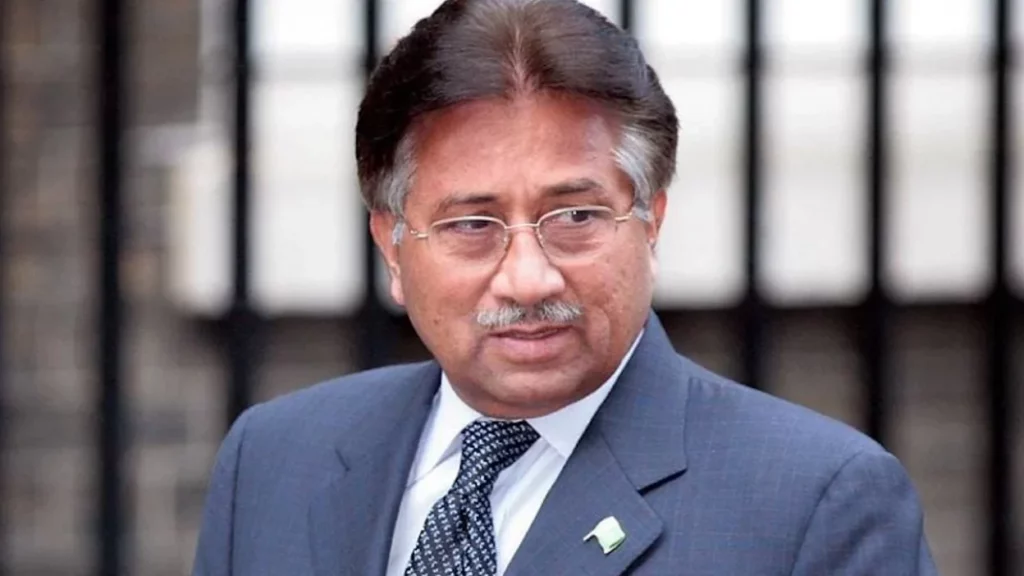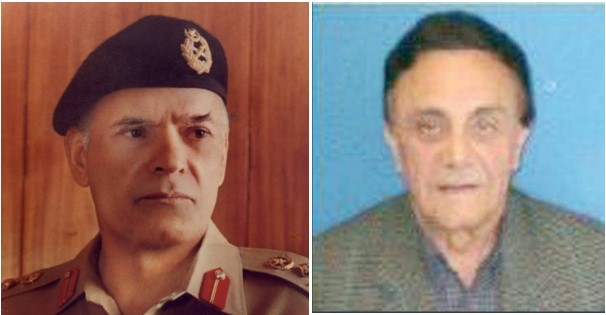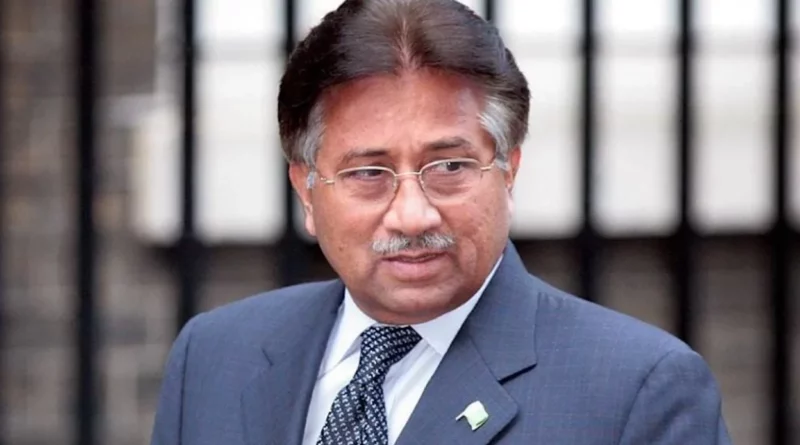A STRANGE HYBRID STATE
A strange hybrid state
Richard Gregson examines the staggering levels of corruption in Pakistan, a country run by parallel forces, including a military that seems answerable to no-one but itself
Pakistan has been a bundle of contradictions since its birth 75 years ago. Founded on the misplaced premise of Muslims being a separate nation, the country’s efforts at democracy have faltered from day one, as democratic values clashed with interests of the landed oligarchy and mullahs, who spearheaded the Muslims League’s demand for a separate Pakistan.
But a powerful force that found in Pakistan’s ideology a quick route to power was the military. Expected to act as the sword of Islam to grab Kashmir and defend the nascent Islamic republic from what was falsely conceived as athreat from ‘Hindu’ India, the military has alwaysbeen in jihad mode.
With a powerful military vying for power with the civilian elite, both of whom claimed to be the custodians of Islam, the former emerged as an all-pervasive,self-appointed power centre.Military dictators have ruled Pakistan for 34 years: from 1958 to 1971, 1977 to 1988 and from 1999 to 2008. There have also been coups that did not succeed.
Over the years, the military has perfected the art of backseat driving. Nothing happens in Pakistan without its consent. Corruption is all-pervasive in Pakistan. But civilians, whether politicians or bureaucrats, have to face consequences. The courts are littered with corruption cases against politicians and bureaucrats, including former Prime Minister Nawaz Sharif and his brother, current Prime Minister Shehbaz Sharif. Yet generals and top military officers seem to be above the law. Rarely are they punished for crimes committed while in office. Despite being tried for treason, the former military dictator Gen. Pervez Musharraf was allowed to go and live abroad, even as the trial proceeded. He was sentenced to death in absentia.
Corruption is multi-layered in the armed forces of Pakistan. It involves kickbacks for purchases, bribes, smuggling of drugs and other contraband, as well as massive irregularities in the military-business complex, exclusively run by the different wings of the armed forces. Serving military top brass and retired officers alike draw huge perks from a whole range of businesses run by the military. Many people would be surprised to learn that the Pakistani armed forces sell anything from biscuits to sanitary napkins, power to fertilisers and provide services such as transportation, healthcare and education – all in the name of charity for ex-service personnel. Being under the tight control of the military, widespread corruption in the military sector remains largely unreported.

Ayesha Siddiqa, a political scientist and regular contributor to Asian Affairs, detailed the Pakistan military’s business operations in her famous book Military Inc.: Inside Pakistan’s Military Economy. The primary aim of remaining in control of Pakistan’s politics, she says, is to serve the interests of the military-owned business empire, or MilBus – a term coined by Siddiqa – and the various entitlements enjoyed by the officers.
Pakistan’s military maintains its stranglehold on the country’s economy through more than 100 different business enterprises operated by subsidiaries of foundations established by the three wings of the armed forces. The Fauji Foundation is under the Ministry of Defence, while the Army Welfare Trust (AWT) is run by the Pakistan Army. The latter is also known as the Askari Group of Companies, a diversified conglomerate with interests in manufacturing, construction, banking and the services sector. The Shaheen Foundation belongs to the Pakistan Air Force and Bahria Foundation is operated by the Pakistan Navy. MilBus is almost omni present, be it in apparel, aviation, bakeries, cement, cereals, fertilizers, fisheries, general insurance, gas, meat, medical equipment, seeds and stud farms. The Askari Commercial Bank is the largest commercial bank in Pakistan.
Nothing happens in Pakistan without the military’s consent
MilBus is also the largest business conglomerate listed on the Karachi Stock Exchange. The AWT controls the country’s largest construction company and the dubious National Logistics Cell, which has not only been involved in transporting weapons for the ISI and the CIA, but also heroin from Peshawar for export to different parts of the world.
Then there is the Defence Housing Authority (DHA), involved in real estate, and the Evacuee Trust Property Board, which together with the DHA holds large tracts of land. The eight housing societies of DHA own prime properties in cantonments and plush civil localities in major cities, where plots are allotted to military personnel. Every military officer gets two plots of land in urban centres at concessional rates, and a loan to build a house. The officers then often sell these properties to civilians at commercial rates. Additionally, officers are entitled to farmland according to their rank in the border regions of Punjab and in the newly irrigated colonies of Sindh. Retiring chiefs of forces are allocated around 400 acres of agricultural land, almost free of cost.
These entitlements have not stopped the top military brass from indulging in corruption, which has been rampant in the higher echelons of the forces. A recent investigation by the Organised Crime and Corruption Reporting Project (OCCRP) has revealed Gen. Akhtar Rahman and Lt Gen. Zahid Ali Akbar held millions of Swiss francs in secret accounts. They were membersof the late Gen Zia-ul Haq’s inner coterie, which pulled off the military coup against Zulfiqar Ali Bhutto’s government. Credit Suisse also reported in October 2021 that some 25 retired officers of the Pakistan Army have Swiss bank accounts.
Gen. Akhtar, the chief of Inter-Services Intelligence (ISI) from 1979 to 1987, was also the brain behind the US-sponsored jihad against Soviet forces that invaded Afghanistan in 1979. His bank balance in 2010 showed CHf 9 million in a Swiss account opened in 1985. The 1980s was a period when big money was being spent by the Americans and Saudis on the Afghan jihad, through the ISI. Gen Akhtar’s sons Harun, Akbar and Ghazi held a separate joint account, opened in 1986. It had over CHf 5 million in 2003, according to the OCCRP report.
Lt Gen. Zahid, a Brigadier from the engineering corps, assigned by Gen Zia to supervise Pakistan’s secret nuclear facility in Kahuta, held CHf 15,535,435 in a Credit Suisse account opened in 2004. The account was closed in 2006 when the Swiss laws on banking secrecy changed. Zahid rose to the position of director general of the Engineering Research Laboratories, a top secret research facility that was developing the nuclear bomb in the 1970s. Post-retirement, Lt Gen. Zahid was indicted in a corruption investigation instituted during General Pervez Musharraf’s regime. In 2016, the 91-year-old general got away with paying the paltry amount of Pakistani Rs 200 million after a plea-bargain agreement arrived at with the prosecutors.

Serving military top brass and retired officers alike draw huge perks from a range of businesses
In 2017, documents leaked to the media revealed that Gen. Raheel Sharif had been given land worth 1.35 billion rupees (US$14 million) by the Army, without authorisation from the Government. Earlier, in 1999, Gen. Musharraf had declared that he and his immediate family owned properties in Karachi, Islamabad, Rawalpindi, Peshawar, Lahore and Gwadar, and agricultural lands in Bahawalpur. His assets were valued at around 50 to 80 million rupees.
A decade ago, Pakistan’s National Accountability Bureau had tried to investigate allegations of kickbacks taken in connection with defence deals involving tanks, submarines, aircraft and jeeps. It found many high-ranking military officers had taken $40 million in bribes to push the deals through. But nothing happened. The bureau also wanted to extradite Admiral Mansurul Haq, who was naval chief under the Benazir Bhutto government in the mid-1990s, and living in the US. Again, to no avail.
Then there were reports of two naval officers, a commodore and a captain, who served under Admiral Haq, being convicted for corruption by a military court. They had taken 4.1m rupees (£52,000) in bribes and were sentenced to long jail terms by the court. But the then naval chief suspended their sentences, and the officers were simply dismissed from service and made to return the money.
Gen. Raheel Sharif had sacked six army officers, including two high-ranking generals, on corruption charges in 2016. They were tried for ‘financial irregularities’ and ‘misappropriation’ and were given early retirement. Nothing more.
And the Panama Papers leak had the name of retired Lt Gen. Shafaat Shah – second in-command during Pervez Musharraf’s tenure as President – owning property in posh areas of London. The papers also revealed that former ISI Chief Major General Nusrat Naeem owned offshore companies worth millions.
These are just a few instances. But they reveal how the Pakistan military literally loots the country’s exchequer and resources without any accountability. Pakistan is a strange hybrid state, indeed. There are two parallel forces in control: the civil administration run by an elected government and the military establishment that is a law unto itself. Both swear by Allah, but are thoroughly corrupt – the military astonishingly so.As a result, the country’s 220-plus million people face a bleak future.
Richard Gregson is a freelance journalist currently based in Canada

